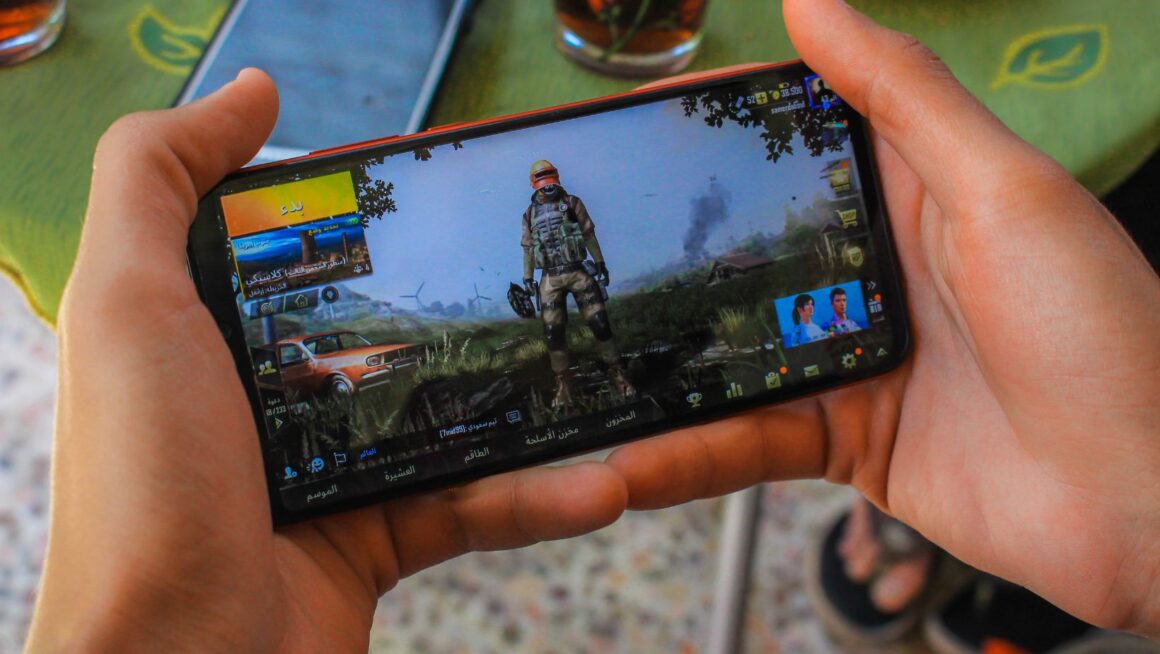
For decades, gaming was treated as a distraction, not a career. Parents told their kids to get off the console and do something “productive.” Today, those same parents might be asking for tips on how their children turned a controller into a paycheck. The global gaming industry now surpasses movies and music combined, worth well over $200 billion annually. What once happened in basements and bedrooms now fills arenas and dominates streaming platforms watched by millions.
The shift began quietly. As the internet matured, gaming communities grew from isolated chat rooms into international networks. Broadband enabled online multiplayer, and later, live streaming brought spectators into the mix. Suddenly, gaming wasn’t just play—it was performance. Platforms like Twitch and YouTube turned ordinary players into public figures. Esports organizations emerged, attracting sponsorships from global brands once uninterested in video games.
This rise changed public perception. The stereotype of the “lonely gamer” collapsed as audiences realized that streamers, developers, and competitive players were professionals running small businesses. The pandemic accelerated that transition: people turned to gaming not only for entertainment but for social connection, making gaming one of the few industries to grow during global shutdowns.
Today, careers in gaming extend far beyond playing for prize money. Some write reviews, others build audiences on TikTok or YouTube, and many work behind the scenes in testing, coaching, design, or analytics. Even modest participation can generate income. Gamers who used to spend hours mastering titles like League of Legends, Call of Duty, or Fortnite now leverage those same hours to teach, stream, or collaborate with brands.
Not every gamer becomes a millionaire, but every gamer with consistency and skill can find a niche. The industry rewards authenticity and focus more than raw fame. For some, success comes from teaching others how to win; for others, it’s about building entertaining personalities that keep audiences watching. The barriers to entry are lower than ever—most monetisation tools are free to access, and audiences are hungry for specialized voices.
The cultural evolution of gaming mirrors the evolution of the internet itself. Once a curiosity, it’s now an ecosystem of opportunity. Turning play into pay isn’t just a fantasy anymore—it’s a practical career path for those who approach it with discipline and understanding.
The Main Ways Gamers Earn Today
There’s no single formula for success, but there are six reliable paths through which gamers consistently generate income. Each demands effort, creativity, and persistence.
1. Streaming and Content Creation
Live streaming and recorded content dominate gaming’s economy. Platforms like Twitch, YouTube, and Kick allow players to broadcast their gameplay while interacting with audiences. Viewers subscribe, donate, or watch ads, providing steady income once the creator builds a following. The startup costs—decent lighting, a good microphone, and stable internet—are modest compared to other creative fields. Growth depends on personality, consistency, and community engagement. Successful streamers often blend entertainment with education, offering both humor and expertise. Sponsorships and affiliate deals usually follow after a channel reaches consistent viewership.
2. Esports and Competitive Play
Esports transform gaming into organized competition with million-dollar prize pools. Titles like Dota 2, Valorant, and CS2 host tournaments that rival traditional sports events in scale. Professional teams sign players to contracts with salaries, housing, and travel stipends. While only a fraction of players reach elite levels, smaller local or online tournaments also offer rewards. Competitive gamers can supplement their income by streaming practice sessions, selling coaching services, or representing gaming hardware brands.
3. Game Testing and QA Work
Not all gaming income depends on public fame. Quality assurance (QA) testing involves systematically playing games to find bugs or inconsistencies. Testers are typically contracted by studios or outsourcing agencies. Though entry-level pay may be modest, it offers a stable route into the professional gaming industry. With experience, testers can advance to design or project management roles. Some gamers also participate in beta programs that reward early feedback with payments or in-game perks.
4. Coaching, Tutorials, and Guides
Players who master a specific game can turn that skill into teaching. Platforms like Metafy, Gamer Sensei, and even Discord communities connect coaches with students seeking improvement. Video tutorials on YouTube and written guides on Reddit or Medium can generate ad revenue and affiliate income. The best coaches stand out by combining clear communication with performance analytics—helping players understand not just what to do but why.

5. Virtual Goods and In-Game Economies
In-game economies are bigger than many small nations’ GDPs. Players trade digital items—skins, cards, weapons, or land—in both centralized and blockchain-based marketplaces. Games like Counter-Strike 2 or Fortnite have thriving cosmetic markets where rare items can sell for thousands. Understanding market trends, rarity cycles, and transaction safety is essential. Some players have even built full businesses flipping digital assets. Using bonus codes on websites that pay out quickly can help maximize early profits or gain items to trade.
6. Affiliate and Review Platforms
Gaming websites, blogs, and YouTube reviewers earn money through affiliate links. By reviewing peripherals, games, or digital marketplaces, creators receive a commission for referred purchases. Unlike sponsorships, affiliate marketing doesn’t require massive audiences—just trust and relevance. A single tutorial about the best budget controller can generate steady clicks for years. Reviewers can also collaborate with indie developers, receiving early access keys and revenue shares for promoting new titles.
Each of these doors opens into its own ecosystem. Some overlap naturally: a streamer can also sell merchandise, an esports player can coach, and a tester can start a blog about QA best practices. The most sustainable income strategies combine multiple paths rather than relying on one source.
What Separates Players from Earners
Earning money from gaming isn’t just about gameplay skill. The people who succeed develop traits that bridge creativity, business, and communication.
Consistency and Time Management
Top creators maintain strict schedules. Regular uploads, predictable streaming hours, and consistent tone build trust with audiences. Treating content like a job—tracking progress, setting deadlines, and measuring engagement—turns momentum into results.
Communication and Engagement
Interacting naturally with viewers or clients creates loyalty. Responding to comments, running polls, and acknowledging feedback keep audiences invested. In coaching or review-based work, clarity matters as much as expertise. Explaining concepts in digestible language separates professionals from hobbyists.
Technical and Marketing Literacy
Video editing, audio balancing, and thumbnail design are now core gaming skills. Understanding SEO principles—keywords, titles, metadata—helps videos and reviews reach more people. Branding through consistent visuals and tone increases recognisability.
Networking and Collaboration
No creator grows in isolation. Partnerships with other streamers, developers, or marketing agencies amplify reach. Joining tournaments, forums, and Discord channels expands exposure to new audiences. Collaboration also opens doors to sponsorships and joint events.
Emotional Control and Public Pressure
Streaming and competition expose players to scrutiny. Handling criticism, maintaining composure after losses, and recovering from burnout are survival skills. Professional gamers often train their mindset as seriously as their reflexes.
Financial and Legal Awareness
As earnings rise, so do responsibilities. Tracking revenue, paying taxes, and managing contracts prevent future problems. Registering as a small business or working through creator management agencies simplifies operations. Understanding intellectual property rights protects content from misuse.
These skills transform gaming from a pastime into entrepreneurship. The more professional a gamer behaves off-screen, the more sustainable their success becomes.
How the Industry Actually Pays You
Behind the excitement of streams and tournaments lies a structured financial system. Understanding how it works turns irregular income into steady growth.
Ad Revenue and CPMs
Platforms pay creators through CPM—cost per thousand ad impressions. Rates depend on geography, niche, and audience demographics. Gaming CPMs are typically lower than finance or tech, but consistent traffic compensates for the difference. Diversifying to multiple platforms helps stabilize income when algorithms change.
Sponsorships and Brand Collaborations
Sponsors pay for exposure, often in cash or free products. Deals can range from small, one-time shoutouts to long-term ambassadorships. Professionalism—clear communication, prompt delivery, and transparency—encourages brands to return. Creators who understand contract terms, deliverables, and exclusivity clauses avoid costly disputes.
Subscriptions and Donations
On Twitch, subscriptions generate recurring revenue. YouTube offers “memberships” with exclusive perks. Donations through PayPal, Patreon, or Ko-fi provide flexible support. Many creators use tiered reward systems to thank supporters with shoutouts, private chats, or exclusive content.
Merchandise and Crowdfunding
Selling branded clothing, emotes, or digital products creates additional income while deepening community identity. Crowdfunding projects—like building a gaming studio or creating a new series—allow direct audience investment. Transparency and regular updates keep supporters loyal.
Affiliate Marketing and Referrals
By linking gaming chairs, accessories, or software, creators earn commissions from purchases made through their links. Small channels can join programs like Amazon Associates, Humble Bundle, or Epic Games Store. Over time, these passive earnings accumulate into a dependable source.
Legal, Tax, and Business Frameworks
Gamers earning consistently should treat their operation as a small business. Registering formally allows for expense deductions—equipment, subscriptions, software—and simplifies tax filing. Contracts should clarify ownership of created content and revenue sharing percentages. When in doubt, consulting a tax advisor or entertainment lawyer is a smart early investment.
The invisible economy of gaming rewards professionalism. Understanding cash flow, diversifying revenue streams, and maintaining records make income scalable. Behind every successful gamer is someone who treats the business side with the same seriousness as gameplay.
The Dark Side of Gaming for Money
Where money flows, exploitation follows. The gaming industry’s openness attracts both opportunity and risk.
The Trap of “Easy Money”
Countless online courses and Discord groups promise instant riches from gaming. Most recycle generic advice or push affiliate links for profit. Sustainable income rarely happens overnight. It requires months of consistent output before noticeable growth.
Burnout and Health Neglect
Long streaming hours or endless practice sessions can erode mental and physical well-being. Gamers who ignore rest, exercise, and social life eventually face exhaustion. Building structured routines, taking breaks, and setting clear work hours protect longevity.
Scams and Fake Partnerships
Fraudulent sponsorships, rigged item-trading sites, and phishing links target ambitious creators. Always verify partners, check payment methods, and avoid sharing account credentials. A quick background search often exposes suspicious offers.
Financial Mismanagement
Sudden income can vanish through poor budgeting. Without tracking expenses or saving for taxes, gamers risk debt or legal trouble. Using accounting tools or hiring a professional prevents chaos.
Public Pressure and Toxic Communities
The anonymity of online spaces can invite harassment or emotional strain. Moderating chats, setting boundaries, and using support systems help maintain balance. Prioritizing safety and mental health is part of being a responsible creator.
Success in gaming for money demands more than passion—it demands resilience. Recognizing these hazards early allows gamers to grow sustainably without sacrificing well-being or integrity.
Building Your First Revenue Stream
Starting small is smarter than waiting for perfection. A 30-day plan provides direction while keeping goals achievable.
Week 1: Define Your Path and Niche
Choose one main income route—streaming, coaching, or writing—and one focus game or topic. Study top creators in that niche. Identify what they do differently and where you can add value.
Week 2: Set Up Your Tools and Brand
Create your social channels, logo, and banner. Invest in a microphone and camera suited to your budget. Use free editing software like DaVinci Resolve or OBS Studio. Establish a consistent posting schedule.
Week 3: Publish and Engage
Release three to five pieces of content—videos, reviews, or tutorials. Focus on quality and clear presentation. Engage directly with your viewers through comments or social media. Join communities to share your work and gather feedback.
Week 4: Analyse and Monetise
Use platform analytics to identify what content performs best. Experiment with minor monetisation: affiliate links, donation buttons, or limited ad placements. Track viewer retention and engagement metrics. Refine your content accordingly.
Month-End Milestones
- Reach 100 followers or subscribers.
- Earn your first small payout or affiliate commission.
- Build a content calendar for the next month.
From this foundation, scaling becomes easier. The habits formed—discipline, clarity, responsiveness—prepare you for higher opportunities. Gaming may start as entertainment, but with the right structure, it becomes an income stream as valid as any other.












